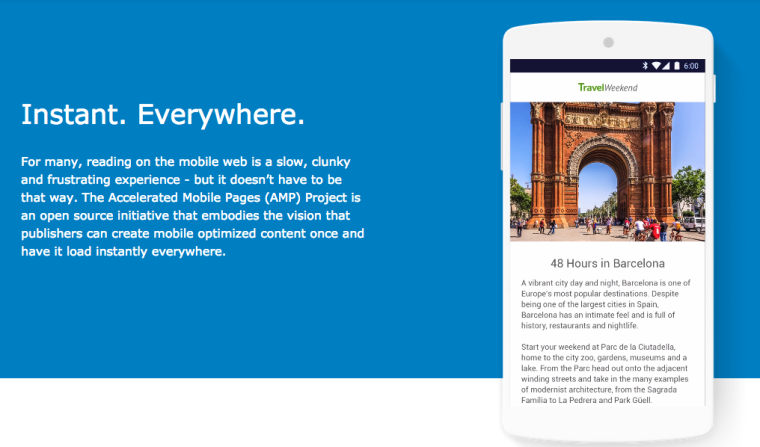Here’s why I’m a fan of the news of Google’s Accelerated Mobile Pages Project: It solves the actual issue surrounding slow load times on the mobile web instead of working around the issue in a self-serving manner like Facebook and other companies have.
Neiman Lab has a good rundown of the technical aspects of AMP and the problems publishers either have now or could have with the technology, which clearly defines what kind of web languages are and aren’t allowed. Those criticisms seem to fall into one of two camps: 1) AMP strips out ads by blocking java and other languages that are common to ad servers and 2) It makes the page look ugly.
Both are legitimate concerns, of course. But they need to be put into some context.
The first is likely to be addressed in some way in the near future. Realistically, though, this is the latest in a series of events to shine a light on just how bad the online ad experience is, an experience that is in no small part caused by the way ad servers are installed on sites. Everyone wants news sites to continue to make money – at least everyone who’s not a freeloading tool – but the way ads are served and displayed right now is getting in the way of that. If someone closes a news site before it finishes loading because it’s taking too long, the ad revenue from that person is zero anyway.
The second issue is silly and publishers need to get over it, and quickly. It’s not like most news sites are a visual wonderland right now. Instead they’re cluttered messes as a dozen different ad units compete for that sought-after 100% viewability metric.
Those two concerns aside, the major advantage for publishers with Google’s approach is that it still prioritizes sending traffic to their site. That’s much different from the off-site, closed-garden approach of Facebook’s Instant Articles and Apple News among others and one that has a lot more brand-awareness and loyalty potential.
If publishers can figure out how to work with AMP – or at least adopt some of the ideas that it has put out there – it will be much better for the open web in the long term.
